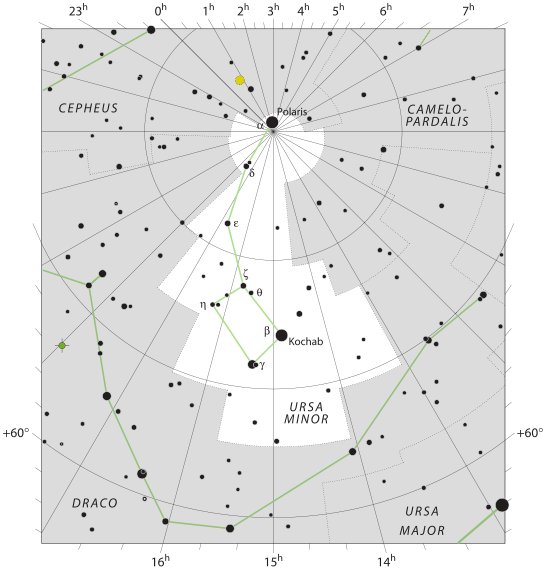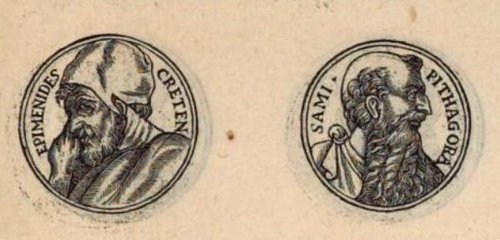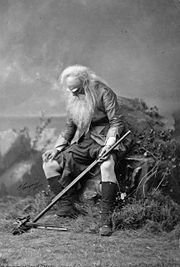|
364
7 Ursa Minor was the Little Bear - and as such had to climb up in a tall pine tree whenever danger threatened down below on the level ground. Such as for instance from an adult bear who would not hesitate to see small bears as prey.
And its leading star Polaris was high up as the current star at the north pole - strangely on the other side as compared to the rest of the constellation lower down. And also compared to the Great Bear, Ursa Major (Tukturjuit):
Close up to the pole time would gradually move slower and slower because precisely at the pole there was a point of change from one direction into its opposite:
Which means that exactly at the pole the 'coin' would be turned around. On one side the 'head' was shining bald and on the other it was in the dark shadows, covered over as if by a piece of cloth (puo) - cfr Gb8-8 (Bharani) and Gb8-30 (Hyadum I). Puo. (Also pu'a); pu'o nua, one who covers himself with a nua (blanket), that is to say, a human being. Vanaga. 1. To dress, to clothe, to dress the hair; puoa, clothed; puoa tahaga, always dressed. 2. To daub, to besmear (cf. pua 2); puo ei oone, to daub with dirt, to smear. 3. Ata puo, to hill up a plant. Churchill. ... The ancient Chinese believed that with the arrival of the dry season the earth and sky ceased to communicate. The Spirit of drought was personified by a little bald woman with eyes at the top of her head. While she was present, the sky refrained from sending rain, so as not to harm her. Hills and rivers are the first to suffer from drought. It deprives hills of their trees, i.e. their hair, and rivers of their fish, which are their people. The same word, wang, means mad, deceitful, lame, hunchbacked, bald and Spirit of drought ...
... The story is in Chapter ten in his section on the Seven Sages, who were the precursors to the first philosophers. The sage was Epimenides. Apparently Epimenides went to sleep in a cave for fifty-seven years. But unfortunately, 'he became old in as many days as he had slept years'. Although according to the different sources that Diogenes relates, Epimenides lived to be one hundred and fifty-seven years, two hundred and ninety-nine years, or one hundred and fifty-four years. A similar story is told of the Seven Sleepers of Ephesus, Christian saints who fall asleep in a cave while avoiding Roman persecution, and awake more than a century later to find that Christianity has become the religion of the Empire ...
|




